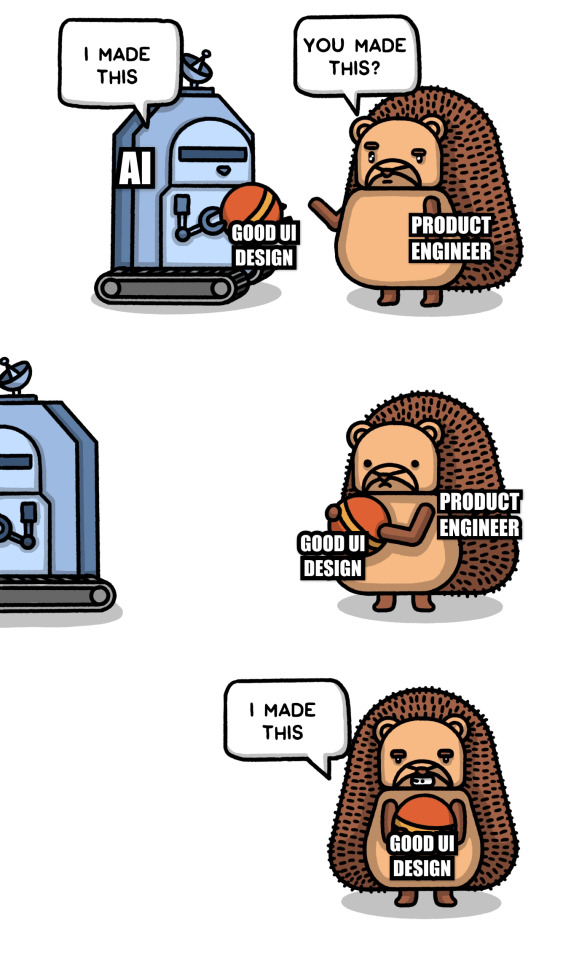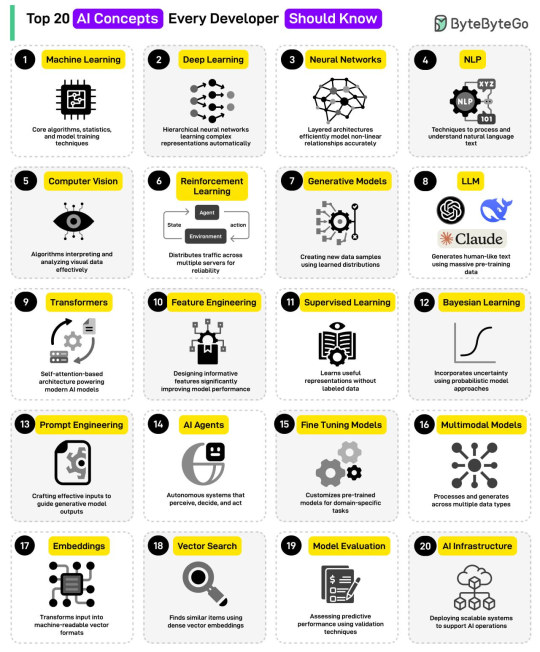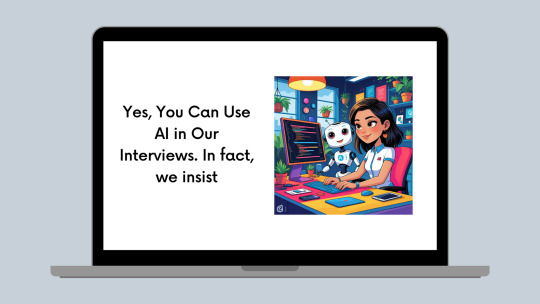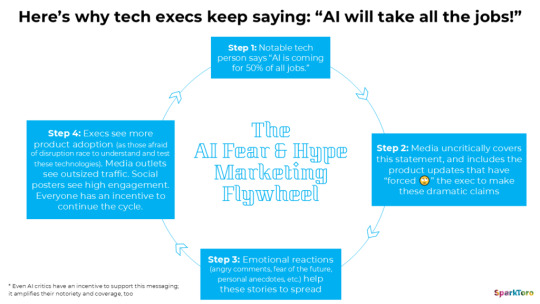All the latest and greatest about open web stack, serverless technology and development tools.
Don't wanna be here? Send us removal request.
Photo

(via An engineer's guide to vibe design (with prompts))
I highly recommend Posthog's blog. They are a very transparent organisation and there is so much to learn from them.
0 notes
Photo

(via https://substack-post-media.s3.amazonaws.com/public/images/bca8fe62-8673-4ef9-a0e7-0489f56de848_1280x1546.jpeg (1280×1546))
0 notes
Photo

(via Yes, You Can Use AI in Our Interviews. In fact, we insist - Canva Engineering Blog)
Aka "I for one, welcome our AI overlords"
Canva has a great approach to using AI in development.
0 notes
Photo

(via Vibe Coding: Fad, Future or Folly? - The New Stack)
IMHO:
As of June 2025 the state of AI is not sufficient to vibe code production ready apps.
However, vibe-like coding along with some discipline and a clear requirements doc is a great way to develop quick proof-of-concepts (POCs).
Just be cautious since it is not uncommon for so called POCs to make their way to production.
0 notes
Photo

(via "AI will replace all the jobs!" Is Just Tech Execs Doing Marketing - SparkToro)
0 notes
Photo

(via The 13 software engineering laws - by Anton Zaides)
This is a great reminder of many software engineering laws with humourous comics to hammer the point home.
#Parkinson’s law#Hofstadter’s law#Brooks’ law#Conway’s law#Inverse Conway's law#Cunningham’s law#Sturgeon’s law#Zawinski’s law#Hyrum’s law#Price’s law#The Ringelmann effect#Goodhart’s law#Gilb’s law#Murphy’s law
0 notes
Link
I have had the product vs platform discussion more than a few times over the past years and some of the nuance comes down to alignment on definition of both. This short-read DZone article does a good job of describing each.
0 notes
Link
0 notes
Link
When I talk about vibe coding I mean building software with an LLM without reviewing the code it writes.
The first takeaway from this article is the relatively new term "Vibe coding" as defined in the quote above.
The second takeway is to understand when to vibe code and why not to vibe code. I think the general public, when they read about AI in the context of software development, imagine developers vibe coding. And I also think that there is a non-trivial number of developers who think they can get away with vibe coding.
By all means try vibe coding, but don't for a moment think it is a substitute for quality code.
0 notes
Link
The science described seems quite plausible to me although the title fails to mention that an acoustic material is required to "bend" the sound similar to how a lens or prism is required to "bend" light.
This could have great application in social settings where different people can listen to different things without bothering each other. I can also see a less friendly use where nefarious actors could use ultrasound beams from two different locations intersecting on a single individual to deliver propaganda, or insight riots.
0 notes
Link
The TL;DR; is
It’s simple - developers needed a way to explicitly tell the browser to open the link in a new tab, free of frame semantics. The underscore signifies a special value rather than a frame name.
But the article provides a little more insight.
0 notes
Quote
Rachael: Do you like our owl? Deckard: It's artificial? Rachael: Of course it is. Deckard: Must be expensive.
Have we reached peak Blade Runner? Check out Casio's ad for an AI hampster and decide for yourself.
https://youtu.be/QBtdTTyF32Q
2 notes
·
View notes
Link
Postgres is becoming more of a do-everything database every day with its multi-modal capabilities. This article explains how it can be used for full text and fuzzy searching.
(via Postgres as a search engine)
0 notes
Quote
The Quest Mentality The conventional term for this sort of personal campaign is a “short-term goal.” But I suggested to OBW participants that they drop the G-word in favor of something more fanciful: the quest. If that sounds a bit whimsical, hear me out. Whereas “goal” has become a tired and bloodless descriptor for the (supposed) intention to do something great, the word quest instills the right mentality for achieving a real-life personal victory: A quest is an adventure, and you expect it to be one. You expect a quest to take you into a new and unfamiliar landscape. You expect there to be puzzles, surprises, perils, and curious encounters. A bridge you counted on will be out. You’ll meet an interesting stranger on the path. You’ll hear wolves howling at night. This is all part of the fun. The goal mentality frames this stuff as setbacks, problems, pains – stuff in the way of the goal. A quest changes you, not just your situation. Goals are practical attempts to change your circumstances. A quest is personally transformative – the endeavor itself shapes who you are, and what you’re capable of. It’s not only the reward that does this, it’s your inevitable encounters with the unfamiliar, and the new capabilities you gain as you handle these encounters. You don’t just get the novel started, you become a writer. You don’t just declutter the house, you get your house in order. A quest has a dragon to slay (and it’s inside you). In all worthy quests, you (the hero) at some point will face a fearsome beast that seems at first like it will be your doom. Maybe there’s a tough conversation you have to have, or a tricky concept you have to learn. From a distance, the dragon always seems unconquerable, yet the hero finds a way. In epic fantasy tales, the dragon is always symbolic — the hero defeats it by overcoming some inner sense of limitation, which they had believed was a permanent flaw. Also, the dragon always guards a hoard of treasure – your life-expanding reward for overcoming this particular inner limitation.
This article aims to reframe personal goals as quests and it offers some very compelling reasons. I am going to experiment with reframing Agile epics as quests.
Do Quests, Not Goals
0 notes
Link
A nice article that brings together and reminds us of a lot of useful Javascript capabilities regarding DOM manipulation.
0 notes